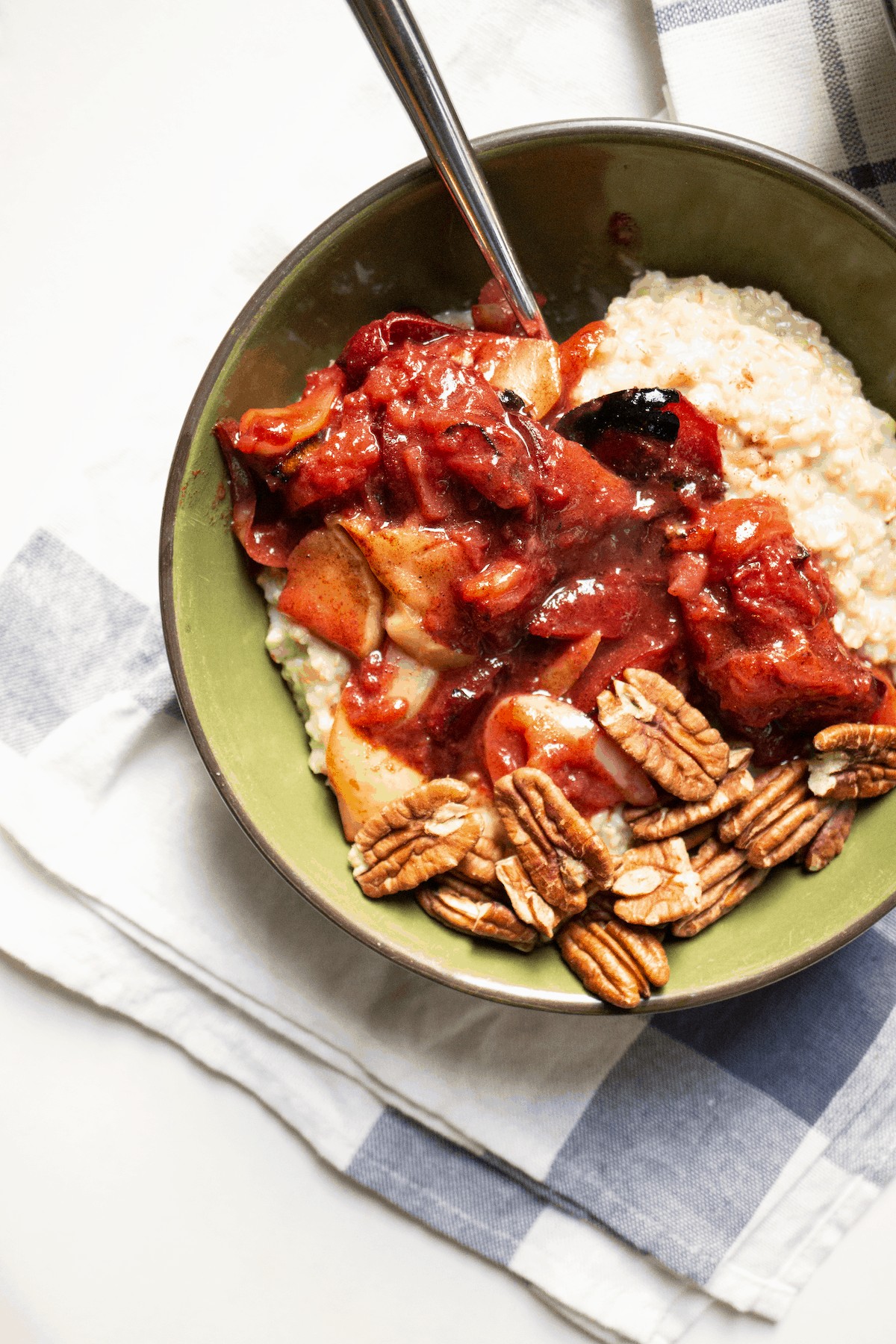
The pursuit of health through clean eating has a dirty problem. Learn what you can do instead to nourish your mind, body, & soul!
Clean eating. Gone are the days of just eating healthy. That’s so yesterday. You have to eat clean. At least, that’s what all those pictures of ripped personal trainers are saying.
But, as a Registered Dietitian with a whole degree in nutrition under my belt, I have some bones to pick with ‘clean eating.’
First of all, what does it even mean?
- I just washed my apple. Does that mean I’m eating clean?
- Having a snack while cleaning the house?
What Exactly is Cleaning Eating?
While there’s no standard definition of clean eating, the general idea is to only eat minimally processed foods, with a huge emphasis on fruits, vegetables, and whole grains. I certainly have no problem with the food being promoted on this lifestyle diet. In fact, that’s what I recommend in my article about processed food and this article about the Mediterranean Diet. It’s the subliminal messaging about eating clean that gets me.
Think about this: What’s the opposite of clean? Dirty. So if you don’t eat something on the approved clean eating list, what are you eating? You’re eating dirty.
- Eating clean or eating dirty leads to feeling clean or feeling dirty when consuming foods from either category.
- Feeling clean can lead to feelings of power, control, righteousness, or even superiority.
- Feeling dirty can lead to feelings of guilt and shame.
How many times have you seen a recipe for “guilt-free” brownies pop up in your news feed? The inherent message is that if you choose to eat any of those other brownies, you had better feel guilty about it.
The truth is….
….the food decisions you make have no bearing on whether or not you’re a good person.
Striving for perfection is a recipe for disaster. It can lead you down the road to an unhealthy relationship with food that ends in a desolate town called eating disorder. Orthorexia, an eating disorder where the person becomes very anxious if they’re not able to eat in the way they perceive to be healthy, is becoming more and more prevalent.
Eating Healthy-ish!
So what’s the alternative to clean eating? Of course, a diet full of fruits, veggies, and whole grains is a nourishing choice. But sticking to those foods 100% of the time just isn’t realistic.
May I present to you…. Eating healthy-ish!
The dose makes the poison. Many health professionals advocate for an 80/20 diet. 80% of eating decisions are focused on nourishing, healthy food. 20% is dedicated to eating anything you want. Guilt-free.
Practically, this could mean that your breakfast, lunch, afternoon snack, and dinner are all very nourishing. But you leave room for that slice of cheesecake for dessert or some popcorn at the movie theatre.
Take a look at these recommendations:
- The World Health Organization recommends keeping added sugars to less than 5 – 10% of a person’s energy intake. They don’t say to cut it down to 0%.
- According to the Dietary Guidelines for Americans, saturated fats should be kept to less than 10% of a person’s energy intake. They don’t say to cut it down to 0%.
- The traditional Mediterranean Diet is based on an abundance of plants, with a big focus on fish and olive oil. Yet, they still leave room at the top of their pyramid for meats and sweets. They don’t say to cut those down to 0%.
- Canada’s Food Guide simply says to “limit processed foods”. It doesn’t say to eliminate them.
It’s About Mindset
At the end of the day you could analyze two people’s diets and find that they both eat healthy-ish.
But their mindsets towards their eating could be polar opposites.
One person may have had a piece of cake at a work function then fretted about it for the rest of the day, stewing in her guilt and remorse, vowing to run an extra half an hour on the treadmill that night as penance for her “dirty eating.”
The other person may have decided to have a slice of cake to celebrate with her co-workers but didn’t worry about it. She simply enjoyed the cake as a small part of her overall diet.
Mindset is everything.
Healthy eating isn’t simply about the food you put in your mouth. Healthy eating is part of whole body health; a health that encompasses mind, body, emotions, and spirit.
If the way you approach food is causing a lot of mental or emotional turmoil, then it’s not a healthy mindset!
A truly healthy, balanced diet is one that’s good for the :
- mind
- body
- emotions
- spirit!
I’ve broken healthy eating down to 5 key components:
- Your eating instincts
- Healthy mindsets
- Intentional choices
- Eating rhythms & routines
- Creating space
To find out which zone you might be missing, take this quiz!


Leave a Reply